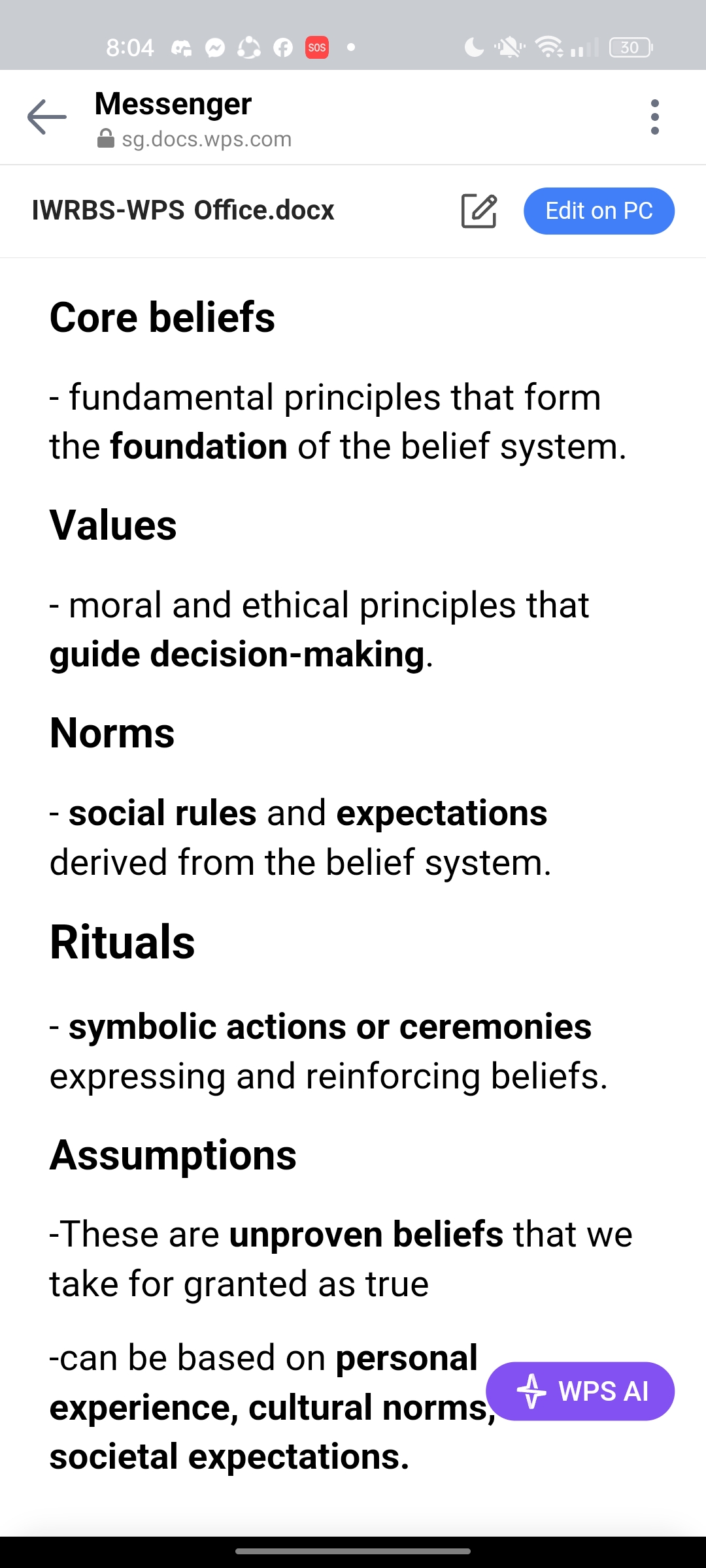Define: core beliefs, values, norms, rituals, and assumptions.

Understand the Problem
The question is asking for definitions of common concepts related to beliefs and values. These concepts are often explored in the fields of sociology, anthropology, or religious studies. The definitions include core beliefs, values, norms, rituals, and assumptions.
Answer
Definitions: Core beliefs: Foundational principles of a belief system. Values: Moral/ethical principles for decisions. Norms: Social rules from beliefs. Rituals: Symbolic actions reinforcing beliefs. Assumptions: Unproven, taken-for-granted beliefs.
Here are the definitions:
- Core beliefs: Fundamental principles forming the base of a belief system.
- Values: Moral and ethical principles guiding decision-making.
- Norms: Social rules and expectations derived from the belief system.
- Rituals: Symbolic actions/ceremonies expressing and reinforcing beliefs.
- Assumptions: Unproven beliefs taken for granted, based on personal experience, cultural norms, and societal expectations.
Answer for screen readers
Here are the definitions:
- Core beliefs: Fundamental principles forming the base of a belief system.
- Values: Moral and ethical principles guiding decision-making.
- Norms: Social rules and expectations derived from the belief system.
- Rituals: Symbolic actions/ceremonies expressing and reinforcing beliefs.
- Assumptions: Unproven beliefs taken for granted, based on personal experience, cultural norms, and societal expectations.
More Information
Values influence norms, and assumptions can stem from cultural norms, showing how these elements interconnect to shape behavior and culture.
Tips
It's easy to confuse values and norms; values are abstract ideals, while norms are specific rules based on those ideals.
Sources
- Culture, Values, and Beliefs | Introduction to Sociology - courses.lumenlearning.com
- What Are Core Values And How Do You Find Yours? - thegoodtrade.com
- BELIEFS, VALUES, MORALS, ASSUMPTIONS AND ATTITUDES - bayridgecounsellingcentres.ca
AI-generated content may contain errors. Please verify critical information